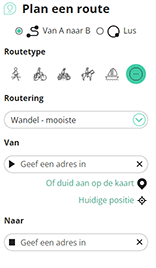

There was a lot of smuggling by a lot of people. This is evident from the large number of reports, including from the courts where those arrested were tried. It was mainly the unemployed who were guilty of smuggling. This is also evident from the sudden decline in smuggling around the month of October. Many then found temporary work in the beet campaign. Everything that was cheaper in Belgium was smuggled to the Netherlands; sugar, elastic, tobacco, lamps etc. The items were often taken on the bike in pockets on the handlebars, but also tucked away in, for example, hollow saddles or under the clothes. Of course, cases were also smuggled from the Netherlands to Belgium. Meat and fish were very popular. Live beasts were also brought across the border. Burlap bags around the legs prevented hoof prints. In the First World War, smuggling was rampant. There were even fairs in Amsterdam and Rotterdam. Smuggling was not a "penny extra income", it was about gross profit at the expense of the Belgians. This was made possible by the cooperation of soldiers stationed here. Military vehicles were the first cars involved in smuggling.
Bron: Agentschap Natuur en Bos
 Azure
Azure![]() | | Publiek | Deens • Duits • Frans • Italiaans • Nederlands • Spaans
| | Publiek | Deens • Duits • Frans • Italiaans • Nederlands • Spaans
Adres: Strijbeek
Statistieken
Selecteer hieronder één van de populairste activiteiten of verfijn je zoekopdracht.
Ontdek de mooiste en meest populaire routes in de buurt, zorgvuldig gebundeld in passende selecties.
Selecteer hieronder één van de populairste categorieën of laat je inspireren door onze selecties.
Ontdek de mooiste en meest populaire bezienswaardigheden in de buurt, zorgvuldig gebundeld in passende selecties.
Met RouteYou kan je eenvoudig zelf aangepaste kaarten maken. Stippel je route uit, voeg waypoints of knooppunten toe, plan bezienswaardigheden en eet- en drinkgelegenheden in en deel alles met je familie en vrienden.
Routeplanner

<iframe src="https://plugin.routeyou.com/poiviewer/free/?language=nl&params.poi.id=923271&params.language=en" width="100%" height="600" frameborder="0" allowfullscreen></iframe>
© 2006-2026 RouteYou - www.routeyou.com